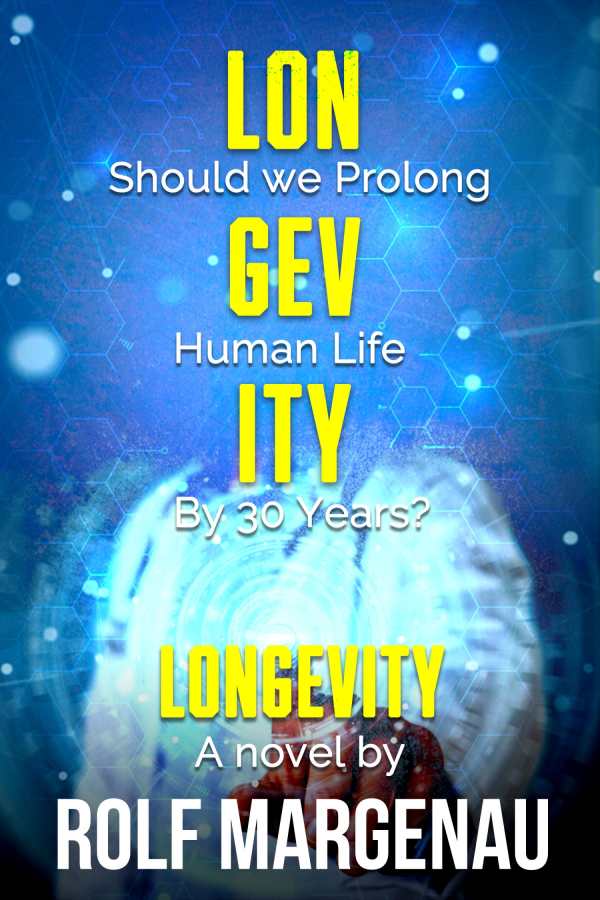
Longevity
Longevity is a unique thriller with glimmers of social and moral commentary.
In Rolf Margeanu’s unique thriller Longevity, a team discovers the means to extend human lifespans and catches the attention of the wrong people in the process.
The Longevity Project tests a revolutionary technology that offers a simple but effective means of extending human life by thirty years. The initial human trials not only work but seem to inject youth and vitality back into their test subjects. Lucy Mendoza, the project leader, finds herself in the crosshairs of several competing agencies who all seek to shut the trial down. The first attempt on her life fails thanks to a recent addition to the project team, a marine-turned-scientist who is also her ex. Corporate espionage, torture, murder, and more follow as the project nears its completion and the discovery is shared with the world.
The story focuses less on the medical technology and its social ramifications than it does on the various forces acting against the project’s completion. Given its small sample size and the fact that its wider societal implications are not addressed, there’s not enough context for what follows. Characters often discuss the ramifications of the project, which leads to violent attempts to shut it down, but nothing negative arises from the project itself to justify these reactions or to make the narrative more compelling.
Initially, intriguing elements, like successful human trials wherein none of the patients suffer ill effects, move the story forward. As news of the trial spreads, it leads into the book’s thriller aspects, most of which revolve around attempts on Lucy’s research and life, though there are enough people involved in the research to make it unclear why Lucy’s enemies think that killing her will stop the project. The ending does not resolve these questions.
Characters’ defining traits tend to fit tropes. The project team is full of hard-working scientists and administrators, all of whom are driven to follow proper protocols and complete the project. The antagonists blend together; all are motivated to stop the project and Lucy, without interesting distinctions. One of the spies adopts several aliases and is too ill-defined to track.
Dialogue helps to maintain a fast pace, but the characters adopt similar tones and mannerisms, and their conversations are muddled. Exposition generally happens outside of the dialogue; when it is incorporated in discussions, it feels realistic, but it also hints at character development that’s never built upon. Descriptions are kept to a minimum, making some scenes harder to conceptualize. Different formats highlight text messages and computer warnings that run too long.
A unique thriller with glimmers of social and moral commentary, Longevity reads like an interesting medical fable.
Reviewed by
John M. Murray
Disclosure: This article is not an endorsement, but a review. The publisher of this book provided free copies of the book and paid a small fee to have their book reviewed by a professional reviewer. Foreword Reviews and Clarion Reviews make no guarantee that the publisher will receive a positive review. Foreword Magazine, Inc. is disclosing this in accordance with the Federal Trade Commission’s 16 CFR, Part 255.
